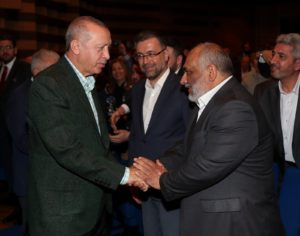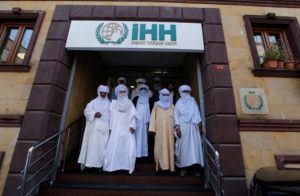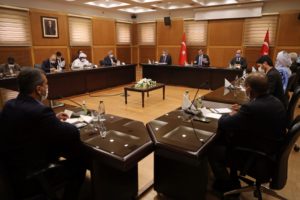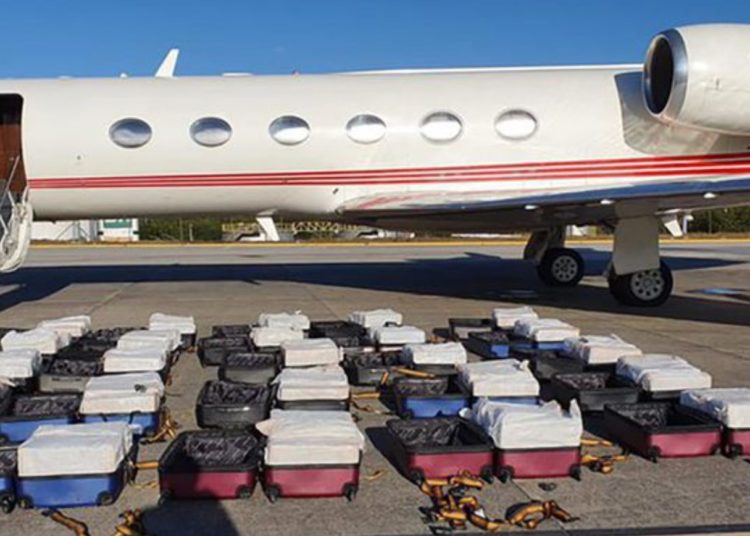Abdullah Bozkurt/Stockholm
A Malian drug trafficker, designated and sanctioned by both the UN and the US, has set his sights on Turkey, a country where trafficking has increased considerably in recent years, with authorities providing protection from criminal probes for traffickers.
Mohamed Ben Ahmed Mahri (aka Rouggy), a 43-year-old citizen of Mali who was designated by the US Treasury as well as the UN Sanction committee in 2019, is believed to have made a trip to Turkey some time in May 2022 despite the fact that he was under a travel ban. Mahri reportedly met with Turkish traffickers about moving illicit drugs to and through Turkey.
According to a report submitted to the UN Security Council on August 3, 2022 by the Panel of Experts on Mali, Mahri submitted an exemption request for travel to Turkey in April, claiming that the trip was for medical purposes. He reportedly did not bother to wait for approval and went ahead with the trip.
His intention to travel to Turkey was included in the UN report after investigators concluded that his request was filed too late, in violation of rules set out for processing such requests.
Mahri’s interest in Turkey for moving illegal drugs comes as no surprise given the fact that Turkey has become a preferred route for drug traffickers, especially in the transportation of cocaine, with the implicit support of senior government officials who take a cut from such activities.
Cover of the UN’s Mali report that was released in August 2022:
In January 2021, Nordic Monitor named Turkish Interior Minister Süleyman Soylu as a suspected drug kingpin for his alleged involvement in the drug trade. Soylu, whose job is to crack down on drug traffickers through the police and gendarmerie he commands, is believed to have been playing a crucial role in facilitating the booming drug business in and through Turkey.
Several large shipments of cocaine destined for Turkey have been seized by Latin American and European narcotics police in recent years; yet no effective investigation to identify clients in Turkey was pursued by Turkish authorities.
Mahri was sanctioned by the UN Security Council on July 10, 2019 because of his alleged involvement in organized crime, including the production and trafficking of narcotic drugs, the trafficking in persons and the smuggling of migrants and the smuggling and trafficking of arms as well as the trafficking of cultural property.
According to the file at the UN, between December 2017 and April 2018 Mahri oversaw a trafficking operation of more than 10 tons of Moroccan cannabis, moved in cooling trucks through Mauritania, Mali, Burkina Faso and Niger. He used convoys led by members of the Tuareg Imghad and Allies Self-defense Group (Groupe d’autodéfense des Touaregs Imghad et leurs allies, GATIA).

Mahri funds armed terrorist groups, especially al-Qaeda-affiliated jihadist group Al-Mourabitoun, also listed under sanctions by the UN, and facilitates the recruitment of fighters for the Arab Movement of Azawad (Mouvement Arab pour l’Azawad, MAA).
He is considered to be a threat to the implementation of the 2015 Agreement on Peace and Reconciliation in Mali, which remains stalled as of the present day, with with none of the implementing mechanisms functioning according to the UN assessment. A UNSC asset freeze and travel ban, designed to help implementation of the agreement by punishing those who try to undermine it, are mostly inadequate and ineffective.
As a UN member state, Turkey is obliged to comply with the UN Security Council Mali Sanctions Committee’s designation and was expected to deny Mahri entry as part of the travel ban. Yet it appears that that enforcement did not happen.
This is not the first time the Islamist government of Recep Tayyip Erdoğan has violated UN sanctions. Saudi businessman Yasin al-Qadi, who had been listed as an al-Qaeda financier on both the US Treasury and UN lists for many years, secretly travelled to Turkey several times. Erdoğan once personally transported him in a government plane during his return to Turkey from an official trip to Saudi Arabia and assigned him personal protection while he was in Turkey illegally without going through immigration.

The Erdoğan government further risked the ire of the US government by facilitating the travel of Mahri, who was also sanctioned by the US Department of the Treasury’s Office of Foreign Assets Control (OFAC) in December 2019. The Erdoğan government, already having a vast array of differences with the US, has not hesitated to shelter about a dozen US-designated individuals in recent years.
The identity of Mahri’s point man in Turkey has not yet been determined, and it’s possible he’s capitalizing on the booming ties between the Erdoğan government and the Tuaregs in recent years. Erdoğan’s Islamists have been trying to woo the Tuaregs for some time, starting with the 2019 visit of 10 Tuareg sheikhs and leaders from Libya. The visit was brokered by al-Qaeda-linked Turkish charity group, the Foundation for Human Rights and Freedoms and Humanitarian Relief (İnsan Hak ve Hürriyetleri ve İnsani Yardım Vakfı, or IHH, in Turkish).
The IHH, backed by Erdoğan and working closely with Turkish intelligence agency MIT, was accused of smuggling arms to jihadist groups in Syria according to United Nations Security Council documents. The IHH was also involved in moving supplies to al-Qaeda groups in Syria according to a two-year-long confidential investigation file that was made public in Turkey in January 2014. The IHH also helped move arms to Syria under charity cover.

The goal of the Erdoğan government is to use the Tuaregs — who enjoy considerable control over vast swaths of empty desert that are often exploited by kidnappers, drug traffickers and radical Islamists — for advancing its policies in the Sahel and North Africa regions.
In November 2020 another group of Tuaregs visited Turkey and met with government officials including Deputy Foreign Minister Yavuz Selim Kıran. The second visit was also facilitated by the IHH, whose leaders were present at the meeting at the foreign ministry.
The IHH has been expanding its operations in Mali with the support of the Erdoğan government in the last decade, building mosques and establishing various entities, especially in the capital of Bamako and in Mali’s western province of Kayes. The IHH often masks its operations under charity cover. According to a 2016 assessment made at a court hearing by Ali Fuat Yılmazer, former head of the police intelligence section that specialized in radical religious groups, “The IHH campaigns are designed to provide aid for jihadists engaged in terrorism around the world and supply medical aid, funding, logistics and human resources for jihadists.”












